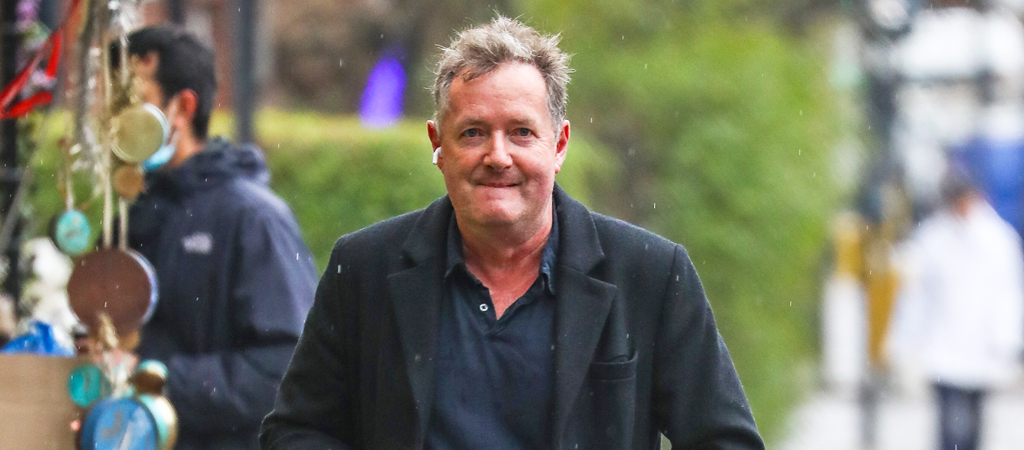The episode of Good Morning Britain featuring Piers Morgan’s disbelief in Meghan Markle‘s mental health claims has been revealed as the most complained about TV show of 2021 by Ofcom.
During the ITV broadcast in March, Morgan openly expressed his skepticism towards Meghan’s statements made during her and Prince Harry‘s interview with Oprah Winfrey.
This led to a heated exchange with weather presenter Alex Beresford and ultimately resulted in Morgan’s departure from the show.
Ofcom disclosed that the controversial episode garnered a staggering 54,595 complaints, marking a significant turning point for the program.
Following closely behind was Harry and Meghan’s interview with Oprah, which also sparked considerable backlash.
The couple made startling revelations about their experiences within the royal family, including allegations of lack of support, refusal of aid during Meghan’s mental health struggles, and instances of racism directed towards their son Archie.
Morgan notably challenged Meghan’s assertions of racism and suicidal ideations, prompting a wave of complaints.
Despite facing backlash, Ofcom later cleared Morgan of breaching broadcasting regulations, emphasizing the importance of freedom of expression.
In a year marked by unprecedented levels of complaints, Ofcom reported a 124% increase in grievances compared to the previous year.
Notably, ITV’s Love Island claimed the second spot on the list of most complained about shows due to a contentious episode involving a heated argument between contestants Faye Winter and Teddy Suárez.
The explosive confrontation followed a revealing clip where Suárez confessed his attraction to another contestant, sparking outrage among viewers.
Piers Morgan’s criticism of Meghan Markle’s high-profile interview with Oprah further fueled controversy.
In response to clips from the interview surfacing online, Morgan condemned Meghan’s remarks as self-serving and exaggerated.
He questioned Meghan’s motives and labeled the interview as a theatrical performance rather than a genuine expression of truth.
Despite differing opinions, the public discourse surrounding the interview intensified, with Morgan’s vocal disapproval adding fuel to the ongoing debate.
The unfolding drama surrounding Meghan Markle didn’t end there, as reports emerged accusing her of bullying palace aides.
Allegations of emotional cruelty and mistreatment surfaced, leading to a formal complaint against the Duchess.
The severity of the accusations raised concerns about Meghan’s conduct within the royal household, prompting a closer examination of her interactions with staff members.
The controversy surrounding Meghan’s behavior added another layer of complexity to an already contentious narrative.
As tensions escalated, Piers Morgan continued to voice his skepticism towards Meghan’s actions and statements.
His critique extended to Meghan’s advocacy for women’s empowerment, contrasting her public image with the allegations of bullying behavior.
The conflicting portrayals of Meghan as both a vocal advocate for women’s rights and a figure embroiled in controversy highlighted the complexities of her public persona.
The evolving narrative surrounding Meghan Markle underscored the intricate dynamics at play within the royal family and broader societal conversations.
In a year characterized by headline-grabbing controversies and contentious debates, the clash between Piers Morgan, Meghan Markle, and the royal family exemplified the intersection of celebrity, power, and public scrutiny.
The polarizing figures involved in the unfolding drama captured the public’s attention and ignited passionate discussions about accountability, transparency, and the boundaries of free speech.
As the media landscape continues to evolve, the impact of high-profile conflicts like the one between Piers Morgan and Meghan Markle serves as a reflection of broader societal tensions and shifting norms in the digital age.

